Are you confused about the terms engine coolant and antifreeze? You’re not alone. Many people use these terms interchangeably, but they actually have different functions. In this article, we will help you understand the key difference between engine coolant and antifreeze, so you can make informed decisions when it comes to your vehicle maintenance.
Engine coolant, also known as antifreeze, is a liquid that circulates through your vehicle’s engine to regulate its temperature. It prevents the engine from overheating by transferring heat away from the engine and dispersing it through the radiator. Antifreeze, on the other hand, is a mixture of water and additives designed to lower the freezing point of the coolant, ensuring that it remains effective even in extremely cold temperatures.
At Kwik Kar Richardson, we understand the importance of proper engine cooling and offer a range of services to maintain your vehicle’s cooling system. Whether you need a coolant flush or a refill with the right antifreeze, our experienced technicians are here to help.
Don’t let confusion about engine coolant and antifreeze leave you stranded on the side of the road. Read on to learn more about these essential fluids and how they keep your engine running smoothly.
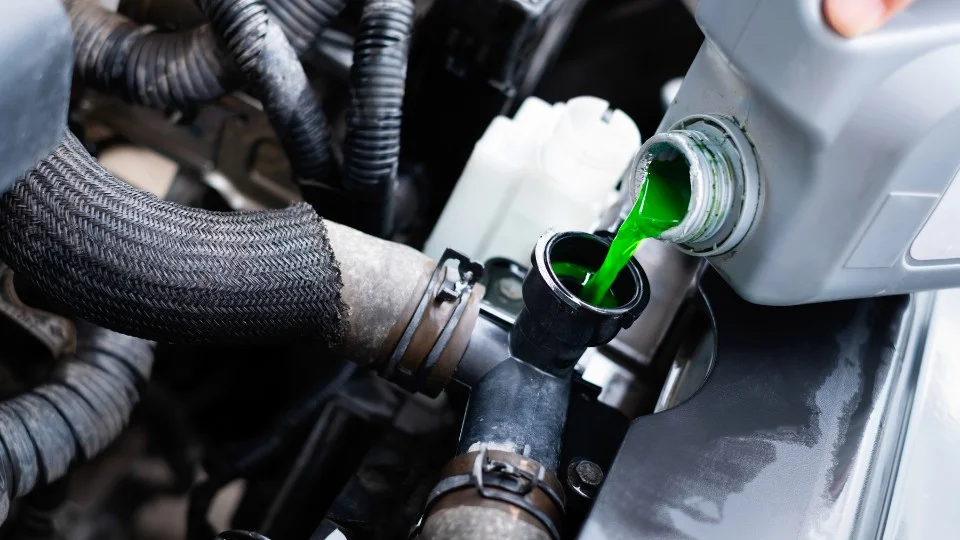
Engine coolant, also referred to as antifreeze, is a liquid that plays a vital role in regulating the temperature of your vehicle’s engine. It is a mixture of water and chemicals that helps to dissipate heat generated by the engine and maintain an optimal operating temperature. Coolant circulates through the engine, absorbing excess heat and carrying it to the radiator, where it is released into the surrounding air.
The coolant mixture typically consists of ethylene glycol or propylene glycol, which acts as the base fluid, and a variety of additives that improve its performance. These additives include corrosion inhibitors, which protect the metal components of the cooling system from rust and corrosion, and anti-foaming agents, which prevent the formation of air bubbles that can impede heat transfer.
Engine coolant is available in different colors, such as green, orange, pink, or blue, which correspond to different formulations and specifications. Utilizing the coolant specified by your vehicle’s manufacturer is crucial for both compatibility and peak performance.
Overall, engine coolant is crucial for maintaining the proper operating temperature of your engine, preventing overheating and damage to engine components. Regular maintenance, including coolant flushes and refills, is essential to keep your cooling system functioning effectively.
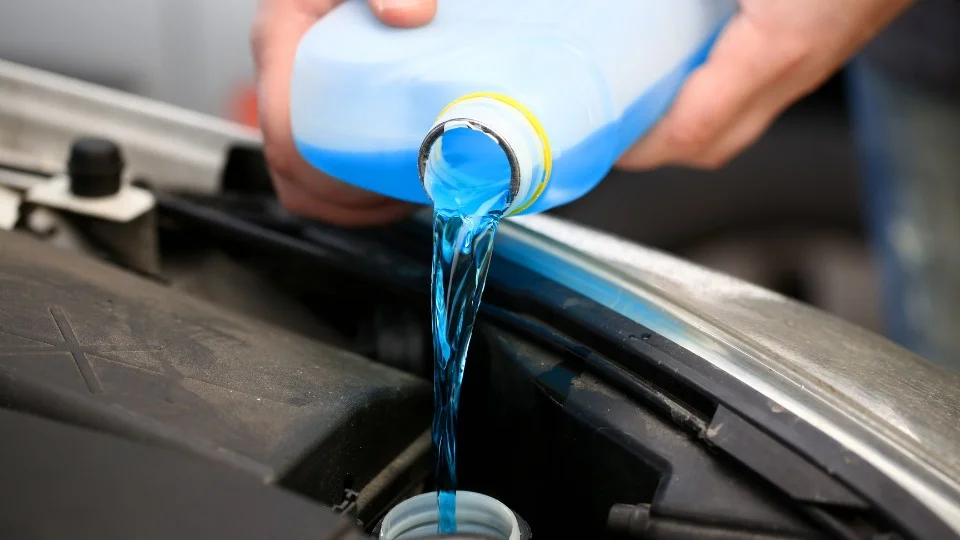
Antifreeze is a term often used interchangeably with engine coolant, but it specifically refers to a type of coolant that is designed to lower the freezing point of the liquid. Antifreeze is essential for vehicles operating in cold climates, as it prevents the coolant from solidifying and damaging the engine when temperatures drop below freezing.
Antifreeze is a mixture of water and concentrated coolant additives that work together to lower the freezing point of the coolant. The most common additive used in antifreeze is ethylene glycol, although propylene glycol is also used in some formulations. These additives prevent the coolant from freezing by interrupting the formation of ice crystals, allowing the coolant to remain in a liquid state even at extremely low temperatures.
In addition to lowering the freezing point, antifreeze also raises the boiling point of the coolant, allowing it to withstand high temperatures without evaporating. This is crucial for preventing overheating and maintaining the proper operating temperature of the engine, especially in hot climates.
Antifreeze is available in various colors, similar to engine coolant, and it is important to choose the correct antifreeze formulation recommended by your vehicle manufacturer to ensure compatibility and optimal performance.
The primary purpose of engine coolant and antifreeze is to regulate the temperature of your vehicle’s engine and prevent overheating. The engine generates a significant amount of heat during operation, and without proper cooling, this heat can cause damage to engine components and lead to engine failure.
Engine coolant circulates through the engine, absorbing heat generated by the combustion process. It carries this heat away from the engine and releases it through the radiator, where it is dissipated into the surrounding air. This continuous cycle of heat absorption and dissipation helps to maintain the engine at an optimal operating temperature.
Antifreeze, as a type of coolant, serves the additional purpose of preventing the coolant from freezing in cold temperatures. By lowering the freezing point of the coolant, antifreeze ensures that the coolant remains in a liquid state and can continue to circulate through the engine, even in freezing conditions. This prevents the formation of ice within the cooling system, which could cause blockages and damage to the engine.
Overall, the purpose of engine coolant and antifreeze is to provide effective engine cooling and prevent temperature-related issues, whether it’s overheating in hot climates or freezing in cold climates.

While engine coolant and antifreeze are often used interchangeably, there are some key differences between the two.
Engine coolant is responsible for regulating the temperature of the engine by absorbing and dissipating heat. It is a mixture of water and additives that improve its performance. Antifreeze, on the other hand, is a type of coolant that specifically lowers the freezing point of the coolant, preventing it from solidifying in cold temperatures.
Engine coolant is typically a mixture of water and chemicals, such as ethylene glycol or propylene glycol, along with various additives. Antifreeze, as a type of coolant, is also a mixture of water and concentrated coolant additives, primarily ethylene glycol or propylene glycol.
Engine coolant and antifreeze are available in different colors, which correspond to different formulations and specifications. The specific color does not indicate the type of coolant or antifreeze, but it is important to choose the correct formulation recommended by your vehicle manufacturer for compatibility and optimal performance.
Engine coolant is designed to operate within a specific temperature range to ensure optimal engine performance. It should be able to withstand high temperatures without boiling and low temperatures without freezing. Antifreeze, as a type of coolant, specifically lowers the freezing point of the coolant to prevent it from solidifying in cold temperatures.
It is important to follow the recommendations of your vehicle manufacturer when it comes to choosing the right coolant or antifreeze for your vehicle. Using the incorrect formulation can lead to compatibility issues and reduced performance.
Understanding these key differences between engine coolant and antifreeze is essential for maintaining your vehicle’s cooling system and preventing temperature-related issues. Make sure to choose the correct formulation recommended by your vehicle manufacturer and follow regular maintenance schedules to keep your engine running smoothly.
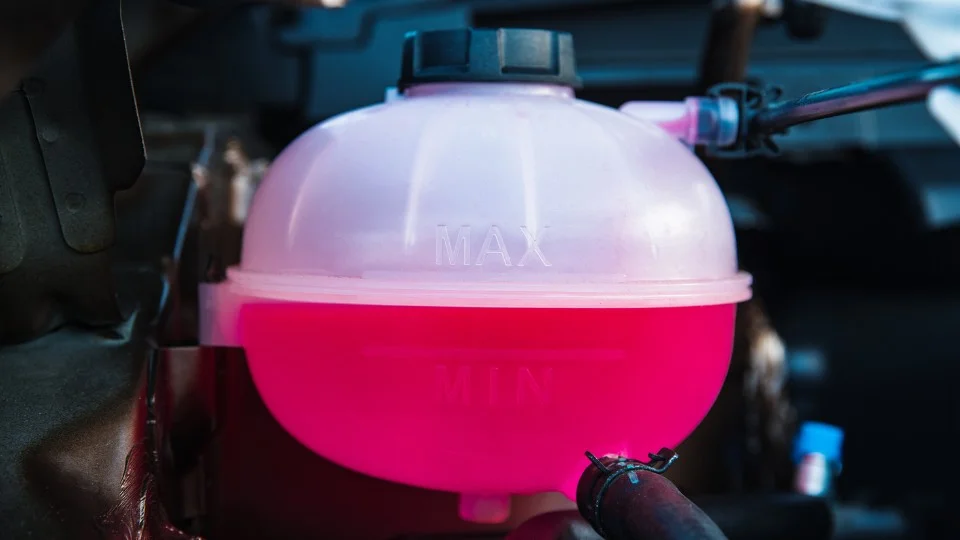
Choosing the right coolant or antifreeze for your vehicle is crucial for maintaining optimal engine performance and preventing damage to the cooling system. Here are some factors to consider when selecting the appropriate product:
The first step in choosing the right coolant or antifreeze is to consult your vehicle manufacturer’s recommendations. They will specify the correct formulation, color, and any other requirements for your particular vehicle. Adhering to these criteria will guarantee seamless integration and peak operational efficiency.
If you live in an area with extreme temperatures, it is important to choose a coolant or antifreeze that is suitable for those conditions. In colder climates, antifreeze with a lower freezing point will be necessary to prevent the coolant from freezing. In hotter climates, a coolant with a higher boiling point may be required to prevent overheating.
Coolant and antifreeze products come with specific specifications that indicate their compatibility with different vehicles and cooling systems. These specifications are usually denoted by codes such as ASTM D3306 or ASTM D6210. Make sure to check the product labels or consult the manufacturer’s documentation to ensure compatibility with your vehicle.
Engine coolant and antifreeze are available in various colors, but the specific color does not indicate the type of coolant or antifreeze. Instead, it represents the different formulations and specifications. Consult your vehicle manufacturer’s recommendations to determine the appropriate color for your vehicle.
Coolant and antifreeze products have different lifespans, which can vary depending on the formulation and additives. Some coolants require regular replacement, while others have longer service intervals. Consider the maintenance requirements and lifespan of the coolant when making your selection.
By considering these factors and following the recommendations of your vehicle manufacturer, you can choose the right coolant or antifreeze for your vehicle and ensure optimal performance of your cooling system.
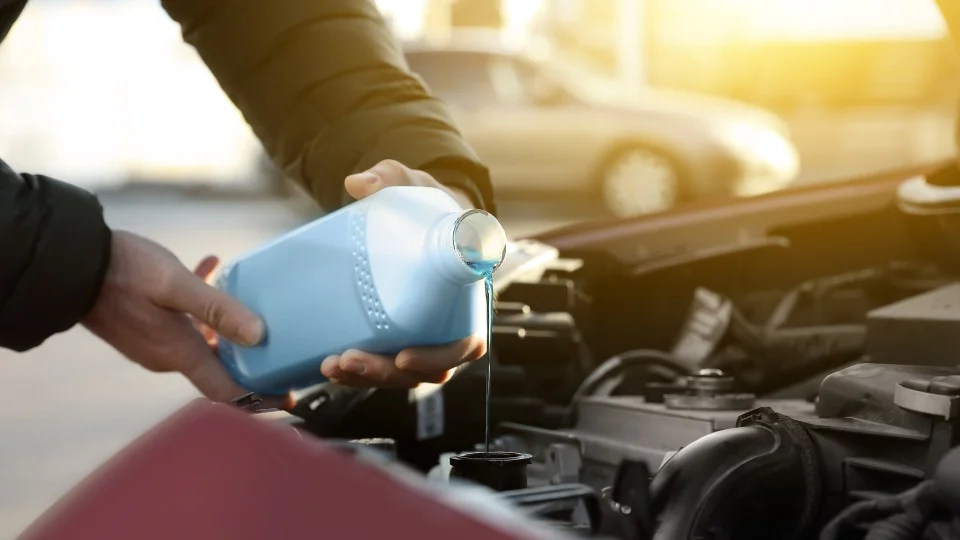
There are several common misconceptions about engine coolant and antifreeze that can lead to confusion and misinformation. Let’s address some of these misconceptions:
While engine coolant and antifreeze are related, they are not the same thing. Engine coolant refers to the liquid that circulates through the engine to regulate its temperature, while antifreeze is a type of coolant specifically designed to lower the freezing point of the coolant.
Coolants and antifreeze come in various formulations and specifications, and it is important to choose the correct product recommended by your vehicle manufacturer. Using the wrong formulation can lead to compatibility issues and reduced performance.
Coolants and antifreeze have a limited lifespan and require regular maintenance. Over time, the additives in the coolant can break down, reducing its effectiveness. Regular coolant flushes and refills are necessary to maintain optimal performance and prevent cooling system issues.
The color of the coolant or antifreeze does not indicate the type of product. Different manufacturers use different colors to represent their formulations and specifications. Always consult your vehicle manufacturer’s recommendations to determine the appropriate coolant or antifreeze for your vehicle.
It is generally not recommended to mix different types or formulations of coolant or antifreeze. Mixing incompatible products can cause chemical reactions, reduced performance, and even damage to the cooling system. Always follow the manufacturer’s recommendations and use the same product or compatible alternatives.
Clearing up these misconceptions will help you make informed decisions when it comes to your vehicle’s cooling system and prevent any potential issues caused by misinformation.
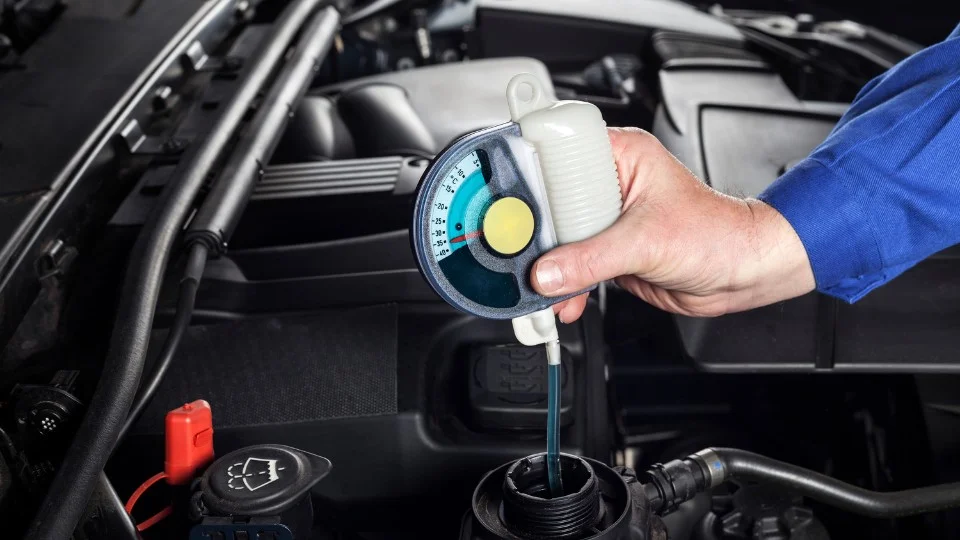
Regular maintenance of your vehicle’s coolant and antifreeze is crucial for ensuring optimal performance and preventing cooling system issues. Below are several factors highlighting the significance of routine maintenance:
The coolant serves as a crucial component in maintaining the optimal operating temperature of your engine. Regular maintenance, including coolant flushes and refills, helps to remove any contaminants or debris that can hinder the coolant’s ability to absorb and dissipate heat. This ensures that the coolant can effectively prevent overheating and protect engine components.
Antifreeze is essential for vehicles operating in cold climates, as it prevents the coolant from freezing and causing damage to the engine. Regular maintenance ensures that the antifreeze concentration remains within the recommended range to provide sufficient protection against freezing.
Coolant is formulated with corrosion inhibitors, safeguarding the metal parts of the cooling system against rust and corrosion. Over time, these inhibitors can break down, reducing their effectiveness. Regular maintenance helps to replenish the corrosion inhibitors and maintain the long-term integrity of the cooling system.
Coolants have a limited lifespan due to the degradation of additives over time. Regular maintenance, including coolant flushes, helps to remove any degraded coolant and replace it with fresh coolant, prolonging the lifespan of the coolant and ensuring optimal performance.
Regular maintenance provides an opportunity to inspect the cooling system for any signs of coolant leaks. Leaking coolant can lead to a gradual loss of vital fluid, potentially causing your engine to overheat and suffer irreversible damage. Detecting and repairing leaks early can prevent costly repairs and potential breakdowns.
By prioritizing regular coolant and antifreeze maintenance, you can extend the lifespan of your cooling system, prevent temperature-related issues, and ensure the long-term performance of your vehicle.

It is important to be aware of the signs that indicate potential coolant or antifreeze problems. Addressing these issues promptly can prevent further damage to the cooling system and ensure the optimal performance of your vehicle. Here are several typical indicators to be mindful of:
If your engine temperature gauge consistently shows high readings or if you notice steam coming from the engine bay, it could indicate a coolant or antifreeze problem. Overheating can occur due to a lack of coolant, a coolant leak, or a malfunctioning cooling system component.
Keep an eye out for any signs of coolant leaks, such as puddles of coolant underneath your vehicle or a sweet smell coming from the engine bay. Coolant leaks can occur due to damaged hoses, a faulty radiator, a leaking water pump, or other cooling system components.
Make it a habit to routinely inspect your coolant reservoir, verifying that the coolant level aligns with the manufacturer’s suggested range. A consistently low coolant level could indicate a coolant leak or excessive evaporation, both of which should be addressed promptly.
If you notice a burning smell coming from your engine bay, it could indicate a coolant leak in hot engine components. This can result in the coolant evaporating and producing a distinct odor.
Coolant should typically be clear or have a bright color, depending on the formulation. If you notice that your coolant has become discolored, cloudy, or contains debris, it could indicate contamination or degradation of the coolant.
Modern vehicles are equipped with coolant warning lights that indicate low coolant levels or overheating. If the coolant warning light illuminates on your dashboard, it is important to address the issue promptly.
Should you observe any of these indicators, it’s advisable to seek the expertise of a certified automotive technician for a thorough vehicle examination. They can diagnose the issue and recommend the necessary repairs or maintenance to restore the optimal performance of your cooling system.
Ready to ensure your vehicle’s engine stays cool and protected? Schedule a coolant check-up with our expert technicians at Kwik Kar Richardson today and drive with confidence!


Get upto $20 OFF on all services.